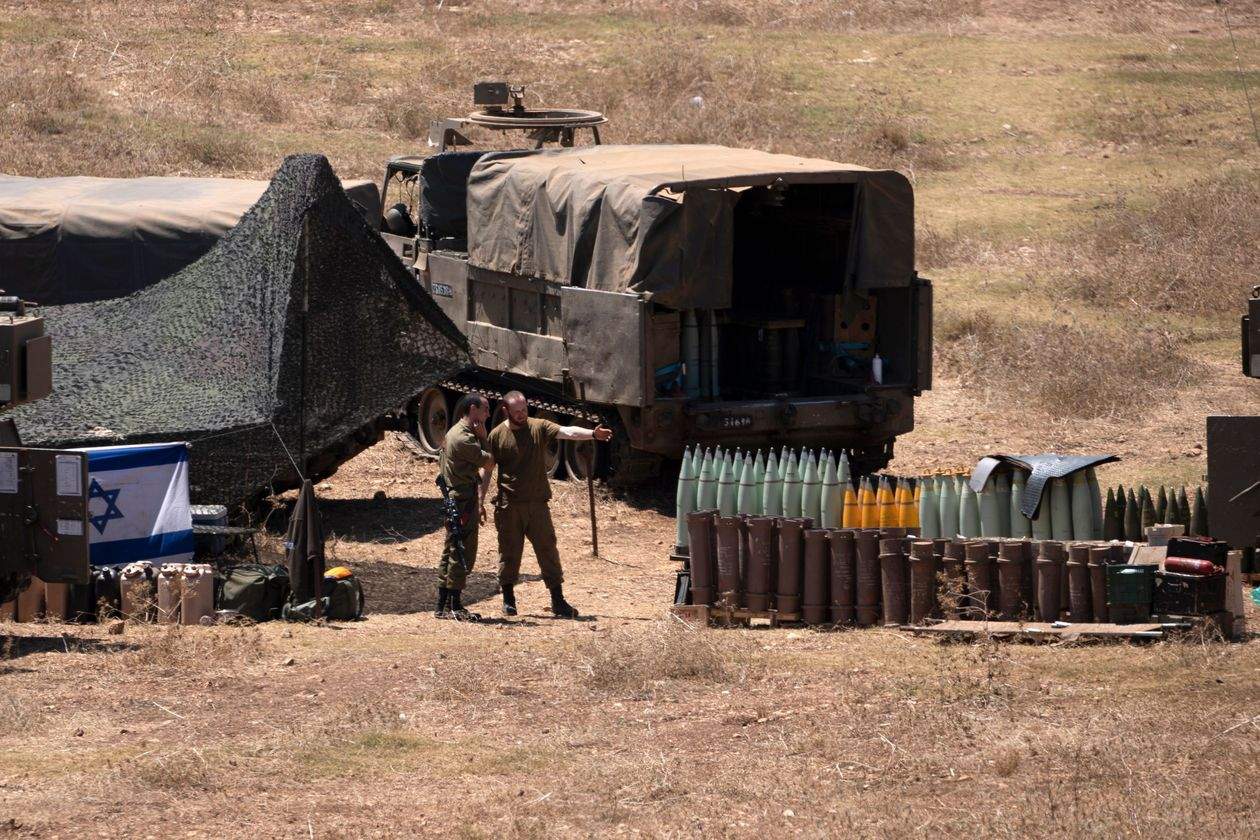Israel Attacks Hezbollah Posts on Lebanese Border in Retaliatory Fire

Israel’s military said it struck Hezbollah observation posts along the Lebanese frontier in response to overnight cross-border fire, adding to a recent flare-up of tensions between the two sides as Israel attempts to curb the activities of Iran and its allies in the region.
Israel’s military said on Wednesday it suffered no casualties from the overnight fire on its troops operating in the area. The troops responded with fire, illumination rounds and smoke shells and later retaliated with attack helicopters and aircraft, the military said.
“These posts provide intelligence for Hezbollah operations and attacks,” said Lt. Col. Jonathan Conricus, a military spokesman. Prime Minister Benjamin Netanyahu said Israel would respond forcefully to any attacks.
Hassan Nasrallah, the leader of Hezbollah, an Iran-backed military and political group in Lebanon, said the incident in southern Lebanon is “important and sensitive” to the group, but said he wouldn’t comment on it for now.
The caretaker Lebanese government said it would instruct its foreign minister to file a complaint to the United Nations Security Council.
The Lebanese military said the posts belonged to Green Without Borders, an environmental group backed by the Beirut government that has conducted tree-planting projects with the Iran-allied militia and political group in the border area.
The Israeli attack blew the top of a 20-foot-tall cinder block observation post that overlooks a military patrol road in Israel, said Abdullah Merhi, a representative of Green Without Borders.
The tower and the row of trees facing it overlook an Israeli patrol road. Israel objects to several Green Without Borders sites but this one is among the most contested.
Israel accuses Hezbollah of using the tower to conduct surveillance on its patrols and said the militia dug a 220-foot-deep, mile-long tunnel connecting the Lebanese town of Ramyah to the Israeli town of Zarit not far from it. Meanwhile, the trees are meant to block the view of Israeli spy cameras on the other side of the border, volunteers with the group said.
Israel said the incident began Tuesday evening when Hezbollah placed a sniper squad in between two U.N. positions, which Israel’s military said it thought was intended to spark an escalation by putting U.N. forces in the crossfire. Israel’s military released video footage highlighting those locations, that of Hezbollah and the Blue Line separating Israel and Lebanon.
Israel has been bracing for a possible attack after an Israeli strike killed a Hezbollah fighter in Syria in July. Israel didn’t comment on the specific strike that killed the fighter in July but Israel’s military said late last month it disrupted an effort by a Hezbollah cell to cross into Israel from Lebanon. It said Tuesday’s incident was the second such event in less than one month and that it has waged a yearslong air campaign aimed at Iran’s entrenchment in Syria. Hezbollah has vowed to retaliate for the killing of its fighters.
Israel and Hezbollah—which have fought two full wars, most recently in 2006—have engaged in spurts of conflict for more than a year as Israel has widened its campaign to blunt the threat posed by Iran’s ally, which it says is working to manufacture precision-guided missiles and build tunnels into northern Israel.
The skirmish comes days ahead of a vote at the U.N. to renew the mandate for the U.N. Interim Force in Lebanon, which was set up in 1978 and expanded in 2006 to monitor the cease fire on the border between Israel and Lebanon. Israel says the force doesn’t do enough to confront Hezbollah while Lebanon has rejected calls to reform it.
Hezbollah, the strongest military and political force in Lebanon, is designated a terrorist organization by the U.S.
Israel has repeatedly warned the Lebanese government not to allow Hezbollah to use the country to launch attacks. Lebanon’s current caretaker government is made up exclusively of Hezbollah and its allies, and its coalition is currently the biggest bloc in parliament.
Hezbollah has come under pressure since a catastrophic explosion in Beirut on Aug. 4. Many Lebanese say the group helps cover up systemic corruption and has focused its attention abroad instead of facing a deteriorating economy at home.
Photo: Israeli artillery units deployed in the north of Israel near the country’s border with Lebanon on Wednesday. - PHOTO: ATEF SAFADI/EPA/SHUTTERSTOCK











